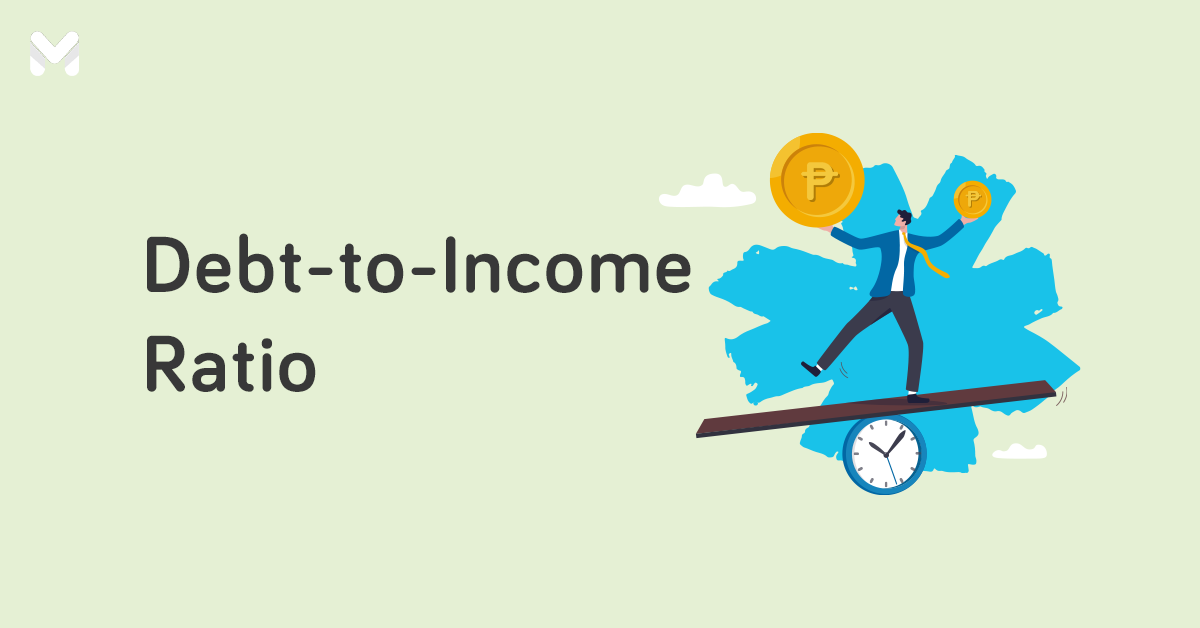Another challenging year came to pass. Naturally, all of us want a fresh start to attract good vibes this 2024.
The year that was may have pushed your finances to the limit. But hey―with the new year comes another opportunity to look at our financial wins and losses and make that much-needed list of New Year’s resolutions and financial goals.
What’s a New Year's resolution, really? It’s a commitment to quit bad habits or to start doing something differently for a better version of yourself or an improved life.
For most of us, it’s harder than it sounds. But to inspire you to make 2024 your most successful year yet, check out this list.
15 New Year’s Resolutions and Financial Goals for 2024
If you always make generic resolutions, it's easy to lose interest and completely forget about them just a few days into the new year, so make them more specific.
Here are some New Year’s resolutions and financial goals that may work for you this year.
👉 Reflect on Your Financial Mistakes
-1.png?width=600&height=400&name=Pics%20for%20blog%20-%20600x400%20(57)-1.png)
Intentionally or not, even the best of us make some of the worst financial decisions. This is the best time to do some financial self-reflection.
Did you spend too much on unnecessary things? Did you often have to ask friends and family members for financial assistance?
Remember that not every mistake is a downfall. Learn from it and bounce back. The key is to avoid making those impulsive financial decisions again and just do better.
👉 Learn More About Money
Read up on business news or check out well-reviewed financial books. Start following leading financial figures online so you can better understand or learn new financial terms and concepts.
You can also follow authoritative financial blogs like Moneymax for useful personal finance tips and lessons. The more you understand how money works, the more likely you are to use it wisely and increase it over time.
👉 Set Realistic Financial Goals
Unrealistic goals will only stress or disappoint you, so make them more attainable. And as much as possible, work with a realistic timeline. This will remove the pressure of trying to stick to New Year’s resolutions that may take a while to achieve.
Start with small, achievable goals, like paying off your credit card bills in full, or settling your loans earlier. Once you tick this off your resolutions list, tackle a new and bigger goal!
Read more: Plan Your Future Now: A Guide to Building Your Financial Roadmap
👉 Be Strategic When Paying Debts
-1.png?width=600&height=400&name=Pics%20for%20blog%20-%20600x400%20(58)-1.png)
On a related note, start with the smallest before working on the bigger debts. It’s a sound strategy that will inspire you to pay off everything that you owe. If budget permits, you can also increase your payments or make extra payments to fast-track the process.
This way, you can eliminate your debts quickly and not have to worry about them for the rest of the year.
👉 Fix a Bad Credit Score
A bad credit score can affect future loan or credit card applications, so start the year with a clean slate. Avail of a credit card amnesty program for your unpaid credit card dues or ask for a loan restructuring for your unpaid loans. Communicate with your creditors to come up with a repayment plan that’s easy on your finances.
👉 Make it a Habit to Review Your Budget Regularly
It’s not always easy to stay within budget. But if you identify expenses where you usually go over budget, you can easily remedy these budget leaks. There are many budget apps that you can download to help you track your spending as well.
Review your credit card statements, shopping receipts, and digital transaction slips. They can be a good wake-up call, especially when you realize you’ve been spending too much on food deliveries or online shopping.
Read more:
- 5 Financial Management Apps to Help You Stay on Top of Your Finances
- Lista PH: Budget Money, Apply for Credit Cards, and More on This App
👉 Save Every Payday
-1.png?width=600&height=400&name=Pics%20for%20blog%20-%20600x400%20(59)-1.png)
To save money as a New Year’s resolution is an easy and doable course of action. Put a portion of your salary into your savings account, and do so every payday.
This way, you won’t be tempted to spend it. Plus, you’ll just have to budget what’s left in your account.
Here are other tried-and-tested ways to set aside money:
- Open a high-yield savings account – Such a savings account rewards you with a higher interest rate. In turn, your money grows faster. Many high-yield savings accounts these days are offered by digital banks.
- Automate your savings – Some banks have a system that automatically sets aside a portion of your money. But in case you’re transferring money from your payroll account to another bank account, you may want to schedule recurring transfers to automate your savings.
- Manage your windfalls – If you have bonuses, inheritances, and unexpected money, you may want to put them toward your savings account.
- Use a piggy bank – Your good ole piggy bank (or any other container for that matter) is perfect for keeping coins and petty cash. However, use it only for short-term expenses.
- Create savings for different purposes – Create different stashes or savings accounts to avoid confusion and accidental spending.
👉 Prepare for Unexpected Financial Stress
The future is uncertain, so you must protect yourself and your family from unexpected financial stress. Here are two things you should start doing:
- Build an emergency fund – Your emergency fund is basically a savings account, but you may want to separate it from your other stashes. Only tap into your emergency fund during unexpected events, such as loss of employment, sickness, and accidents. The rule here is to save at least three to six months’ worth of your household expenses.
- Get insurance – Get a health insurance policy to keep bankruptcy at bay in case you get sick. Life insurance, on the other hand, will leave something to your family in case you pass on.
Read more: Reasons to Build an Emergency Fund (and Why It’s Different from Savings)
👉 Earn Passive Income
Already got savings? Good! The next thing you need to do is to make your money work for you. With that, make investing part of your New Year’s resolutions and financial goals.
By investing your money, you get to earn passive income. It’s also a good way to protect your money from inflation.
But before you start investing, you have to know your risk appetite. For newbies, it’s wise to put your hard-earned cash in low-risk investments, such as bonds, variable unit-linked (VUL) insurance, and Pag-IBIG MP2.[1]
Once you’ve already had a grasp of investing, try moving to mutual funds and stocks. Just a reminder: only invest money you’re willing to lose. More importantly, do your research.
👉 Inform Yourself of Your Credit Card Perks
-1.png?width=600&height=400&name=Pics%20for%20blog%20-%20600x400%20(60)-1.png)
Check your credit card rewards program to see if you’re eligible to redeem free items. Use your rewards points to pay off fees or get discounts on purchases. You can also use your cashback credit card to get rebates on qualified purchases.
Every little discount or freebie goes a long way, especially if you’re trying to save more.
Don't have a credit card yet? Check out some of your best options in the Philippines:
| Credit Card | Best For | Key Features |
|
UnionBank Rewards Credit Card
|
Rewards
|
|
|
Metrobank Platinum Mastercard®
|
Dining
|
|
|
BPI Rewards Card
|
Beginners
|
|
|
UnionBank Lazada Credit Card
|
Online Shopping
|
|
|
Petron BPI Card
|
Fuel Purchases and Auto Services
|
|
👉 Declutter to Make Room For More Meaningful Purchases
Take the time to reflect on whether you still find joy in most of your things.[2] If not, sell them and earn extra cash (this is also a great New Year’s resolution for students who want to earn extra this year).
Sell old clothes and other stuff that you haven’t used but are still in good condition—like your old car that you keep around for sentimental reasons, those crafting materials that you bought but never used, books and DVDs gathering dust on your bookshelf, and even those winter clothes that you keep in little storage boxes under your bed.
By decluttering, you can also evaluate your shopping habits and realize you've been spending too much on unnecessary things you end up throwing away anyway.
👉 Evaluate Items When Shopping
If you have the means, it’s easy to buy an expensive item right off the bat. However, always question yourself before getting that new flat-screen TV or booking that swanky holiday in Japan.
Here are some guidelines when it comes to purchasing a big-ticket item:
- Compute the real price of the item – Sometimes, an item comes with expenses you haven’t considered before. For instance, a brand-new car will require you to pay for insurance, preventive check-ups, registration, toll, and parking fees, just to name a few.
- Think about how frequently you’re going to use it – Will you be using it on a regular basis? Will it make your life easier? If the answer to both questions is no, consider rethinking your purchase.
- Consider whether the item will put you in debt – Debts are a fact of life. But if this new item brings unnecessary debt in contrast to its actual worth in your life, you’re probably better off without it.
👉 Be Mindful of Lifestyle Creep
-1.png?width=600&height=400&name=Pics%20for%20blog%20-%20600x400%20(61)-1.png)
Dealing with lifestyle creep should be part of your New Year’s resolutions and financial goals. But what is lifestyle creep exactly?
Lifestyle creep is when your living expenses increase as your income grows. It’s when the things that were once luxuries become essentials. These may include quarterly vacations, a new car, new gadgets, and meals at upscale restaurants.
Lifestyle creep can sabotage your financial health in the long run. Avoid it by sticking to your budget, living within your means, and surrounding yourself with like-minded individuals.
However, don’t skimp on yourself. Reward yourself and indulge in the things you love every once in a while. After all, you deserve it.
Read more: Live a Rich Life: This Netflix Show Tells You How
👉 Start Planning Your Retirement
You’re never too young to plan for retirement. After all, creating a retirement fund doesn’t and shouldn’t happen overnight. When planning your retirement, ask yourself the following questions:
- Are you starting a family?
- Where do you want to settle down?
- Will you be traveling a lot?
- What are the possible sources of income after you retire?
- What are the possible expenditures once you retire?
- Are you going to adjust your investment plans (i.e., transferring high-risk investments to low-risk instruments)?
The questions above should help you determine the things that you need to do as early as now.
👉 Start Planning Your Funeral
Death will always be a touchy subject. But if you open your mind, you’ll realize that if you don’t want to burden your family financially once you perish, you must prepare for it.
Here are a few things to remember when pre-planning your funeral:
- Save up for a memorial lot.
- Get a memorial life plan.
- Get on with estate planning.
- Express your funeral-related wishes.
Read more: Final Expenses: Here is the Cost of a Funeral in the Philippines
How to Stick to Your New Year’s Resolutions and Financial Goals
-1.png?width=600&height=400&name=Pics%20for%20blog%20-%20600x400%20(62)-1.png)
Making New Year’s resolutions and financial goals is one thing. Making them happen is another. If you want to stick to your start-of-the-year promises, here are some tips to take note of:
- Acknowledge it’s going to take time to achieve your goals. What you need to do is start small. Start slowly and surely. Above all, be consistent.
- Write your goals and plans down. Make them as detailed as possible. For instance, if your resolution is to save money, indicate how much you’re going to set aside weekly or monthly. That way, you’ll be able to track your progress.
- Reward yourself. After all, you need to keep yourself motivated!
- Seek the help of your family and friends. You can ask them to remind you of your goals or have them join you.
- Know that the whole thing is a process. You may falter along the way, but that shouldn’t discourage you. Be patient with yourself while keeping your eyes on the prize.
Final Thoughts
To succeed with these New Year’s resolutions and financial goals, you need to assess your current financial situation.
What do you own, and how much do you owe? Where’s your income coming from, and what are you spending them on? Is one income stream enough to cover all your expenses, or do you need to create several more to make ends meet?
Once you work out the numbers, you’ll know what changes you need to make or bad money habits you need to let go of.
Some of these financial resolution ideas may be harder than others, but they can be done! With discipline and willpower, you can achieve your goals and come out on top of your finances.
Sources:
- [1] Pag-IBIG Fund MP2
- [2] What is the KonMari Method? Here’s How to Declutter the Marie Kondo Way (Good Housekeeping, 2019)















